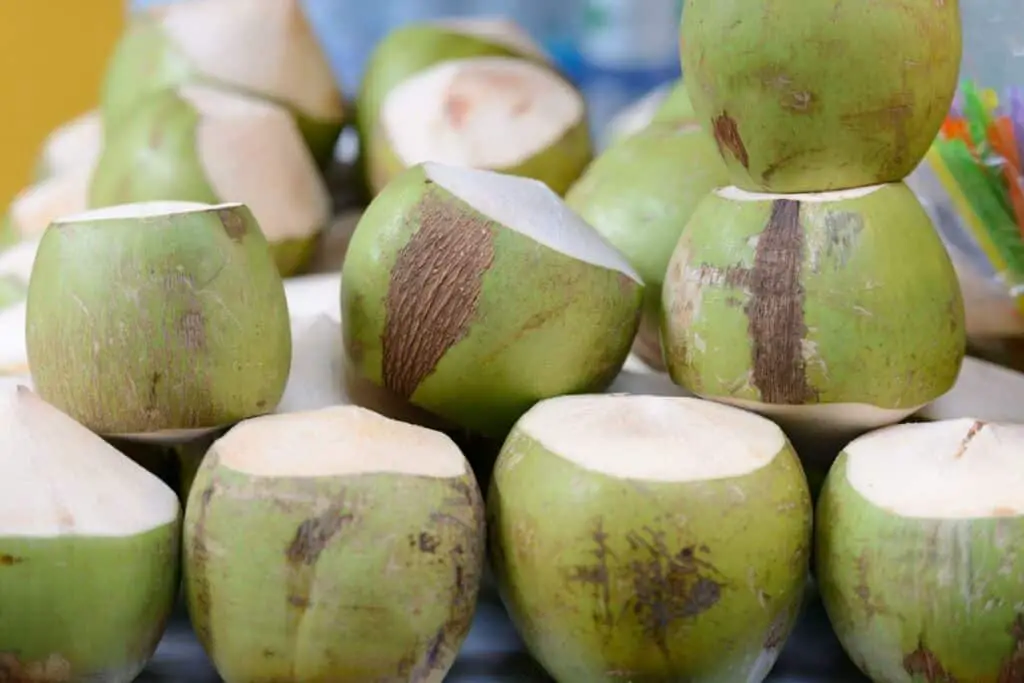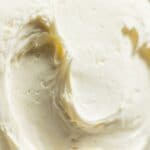In a nutshell: Yes, coconut water can go bad if not stored properly or past its prime, leading to changes in smell, taste, and texture. Signs of spoilage include a sour smell, of taste, or slimy texture. Storing unopened coconut water in a cool, dry place away from heat and sunlight is advised. Refrigerate opened containers and transfer leftovers into sealable bottles to maintain freshness.
Coconut water is a grateful drink for long-term storage. It usually comes packaged in a can but can often be found in a tetra pack edition, as well as in glass bottles. It usually contains a best-by date written on the label, and you can be sure that it will last some time longer than that date.
However, you should remember that the drink’s quality may decline, and it can also spoil due to unfavorable storage conditions or simply standing on the shelf for too long. Here are all the details you want to know about the durability and perishability of this quencher.
How Long Does Coconut Water Last?
What you will see on the product label most often is the best-by date, but that, of course, depends on the manufacturer. Very often, a period of 12 months from the date of production is set as a safe period in which the drink will retain its best quality. Here’s how long you can count on purchased coconut water.
Unopened coconut water
No matter what form it is packaged in, cans, tetra packs, or bottles, coconut water will surely last a little longer than the date written on the package, provided that the storage conditions are favorable, which you can read about below. It is almost certain to say that the drink will be good for a few months after its expiration, even up to half a year. We wouldn’t stretch the duration too much after that. So if your reserve is recently expired, you can drink coconut water without fear.
Opened coconut water
Although the durability is lengthy before the opening, once you start the package, the quality of the coconut water decays very quickly. It is safest to consume the leftover coconut water within one day, but the quality should be satisfactory approximately 3 to 5 days after opening. After that, rather throw away the water and take a fresh pack. Drinking coconut water after standing open for too long is not recommendable.
Can Coconut Water Go Bad?
It is more likely that you will discard coconut water because of impaired quality than because of spoilage. But it is undoubtedly true that this product can also go bad. It’s best to drink freshly opened coconut water. But if you have leftovers forgotten in the fridge, here are the signs that it’s time to pour the coconut water down the drain.
Sign 1: Strange smell
Fresh coconut water has a sweet and pleasant smell. It is definitely a bad product if you notice a sour and displeasing odor after opening the cap. For your own safety, throw it away.
Sign 2: Taste is off
Just like the scent, the taste of coconut water is pleasant and sweet. Any deviation, acidity, or stale taste is a sign that the product has expired. Even if it is not spoiled in the sense that it harms your health, you will certainly want to throw away such a product for qualitative reasons.
Sign 3: Slimy texture
The texture of coconut water should be fluid, clear, and pleasing to the eye. If you notice a somewhat thick consistency, a bit slimy, it’s definitely rotten water.
For canned coconut water, you can follow the same advice above, and also make sure to consume before the expiration date.
What Is The Best Way To Store Coconut Water?
There are no excessive requirements when it comes to storing coconut water. As long as it’s not open, it’s shelf-stable, so you don’t have to keep it in the fridge unless you like a cooler taste. Here are some guidelines you need to follow for long-lasting coconut water quality.
Tip 1: Keep away from heat
It is extremely important to keep coconut water at a comfortable temperature, in a cool and dry area. Any heat sources will cause faster deterioration and a decline in quality. Also, do not expose the product to sunlight. This primarily applies to those packaged in transparent bottles, but you are free to use this rule for all other products as well.
Tip 2: Refrigerate after opening
After opening the coconut water package, be sure to keep the leftovers in the refrigerator. If you accidentally leave it overnight on the kitchen counter, it is better to throw it away in the morning. Keep in mind you should consume the leftovers within five days maximum. Unpasteurized coconut water should be refrigerated at all times.
Tip 3: Pour into a sealable bottle
Coconut water remains should stand in the refrigerator well sealed or in an airtight container. The cans are not resealable, so pouring the leftovers into an adequate bottle and closing them with a stopper is necessary.
FAQs
How can you tell if coconut water is bad?
You can tell if coconut water is bad by checking for changes in color, unusual odors, and an off or sour taste. If any of these signs are present, the coconut water may have spoiled and should not be consumed.
Is it okay to drink expired coconut water?
Yes, coconut water can be quite safe to drink even up to six months after its expiration date, if stored properly. Provided the packaging is unopened, of course. If you do not notice any spoilage, it is safe to consume the coconut drink within that period.
How long does coconut water last in the fridge?
Coconut water typically lasts around 1 to 2 weeks when stored in the refrigerator. It’s recommended to check the product’s expiration date and follow any guidelines provided by the manufacturer for the most accurate shelf life information.
Does coconut water go bad in 2 days?
No, coconut water typically does not go bad in 2 days when properly refrigerated. However, it’s advisable to check for any signs of spoilage such as changes in color, smell, or taste before consumption.
Conclusion
Coconut oil is grateful for long-term storage, and you can keep it on a shelf in the pantry or the kitchen cupboard. It is only necessary that there are no heat sources nearby.
Once you open the package, be sure to keep the product in the refrigerator and consume it as soon as possible. Signs of spoilage should be clearly visible to you through bad smells and tastes, especially if you notice density in the texture.
See more:
*image by amazingmikael/depositphotos









